Feedly Show Article Instead of Blurb
 r
r
Really Simple Syndication, or RSS, is a way in which many people share their content with a wider audience. Instead of relying simply on search results or social engagement, you can use the WordPress RSS feed to increase visitor count.
Although the default programming of WordPress is functional when it comes to sharing your feed, there are always things you can do to improve the experience. That's one of the most beautiful things about having a hosted WordPress website. It's fully customizable out of the box.
In this tutorial, we're going to show you a few things you can do to maximize the effect of your RSS Feed and why you should care. It's possible to vastly increase your visitor count if you spend a few moments working on the feed.
Why should you maximize your RSS feed?
One of the nice things about using the RSS feed is that once it is set up, you don't have to do anything more. It's an automatic process that takes your most recent content and puts it into a syndicated format to share with reading sites like Feedly.
Sharing content in this fashion can also help improve online reputation as well as search engine results. The more often your business is displayed, the better. When more people begin visiting your content, you'll begin to improve as an authoritative figure online. Of course, this is also going to depend on the type of content you deliver.
There are some settings for the RSS that will have a more positive impact in gathering attention. We'll go over those in a moment, but many of them can influence how people interact with your website. In some instances, you can even add a minor copyright protection that will tell Google that your site had the content first.
3 Ways to Maximize the Effect of Your RSS Feed
Because of its popularity, we're going to look at a few ways to maximize your site's performance using Feedly as well as other reader platforms. We'll also touch base on how to effectively use your different feeds within WordPress.
You may find out you have more WordPress RSS feeds than you realize.
1. Showing a Summary Instead of the Full Article
By default, your WordPress website may be set to show the full article in a feed and not the summary. While this will give people access to your content as a whole, you may be losing out on visitors.
By setting the RSS feed to show only a summary, you are essentially making visitors come to your site if they want to see the piece as a whole. This is helpful if you use advertising banners, affiliate programs or if you have other things on your site you want people to see.
To change this layout:
Step 1: Go to the settings area of your WordPress website.

Step 2: Click on the "Reading" section in the list.

Step 3: Find the location of, "For each article in a feed, show" and select the radio button for "Summary."
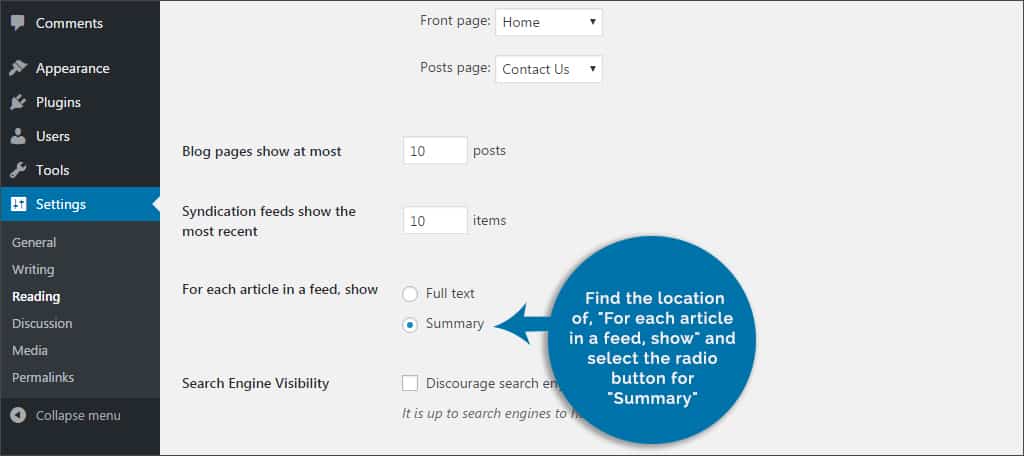
Step 4: Click the "Save Changes" button on the bottom left.

Now, visitors will only be able to access a snippet of your content and will have to visit the actual website to read the rest.
2. Before and After the Feed Content
One way to offer a sense of copyrighting is to add a short blurb after the feed content. For example, some may put a sentence like, "This post first appeared on ggexample.com." This is a great addition to have if you're worried about other people scraping or plagiarizing your work. To add these small pieces of content before or after your feed:
Step1: Install and activate the Yoast SEO plugin.
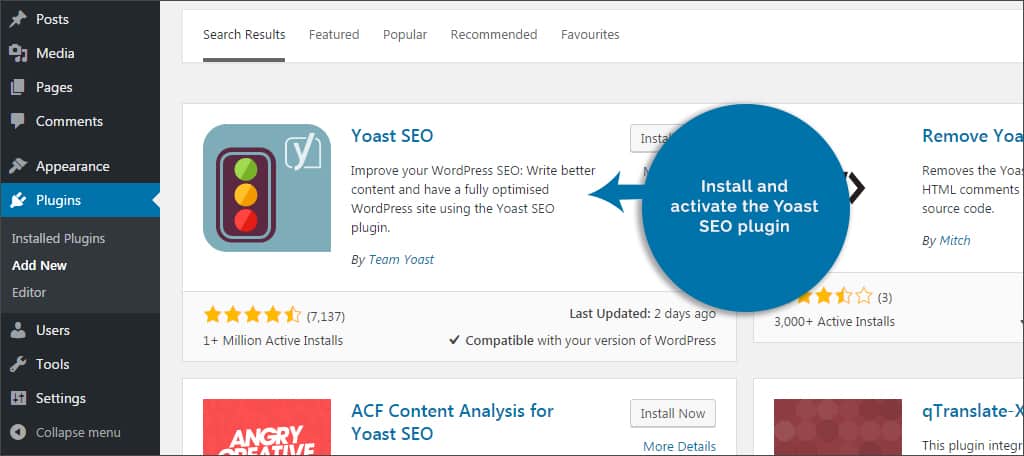
Step 2: This will add a new function to your WordPress admin panel on the left titled, "SEO." Click this.

Step 3: Click the "Advanced" section of the tool.

Step 4: Along the top of this page, click on the "RSS" tab.
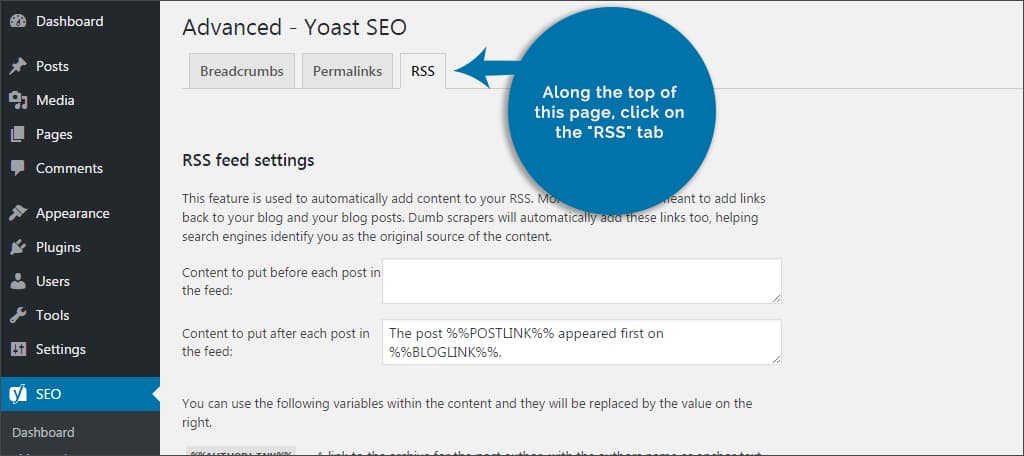
Step 5: Yoast will automatically add the content after your feed stating the post first appeared on your website. However, you can change this or add a beginning line of text.

NOTE: You can also include things like the author name and other texts using the provided codes in this screen.
Step 6: Click the "Save Changes" button on the bottom left when you are done.
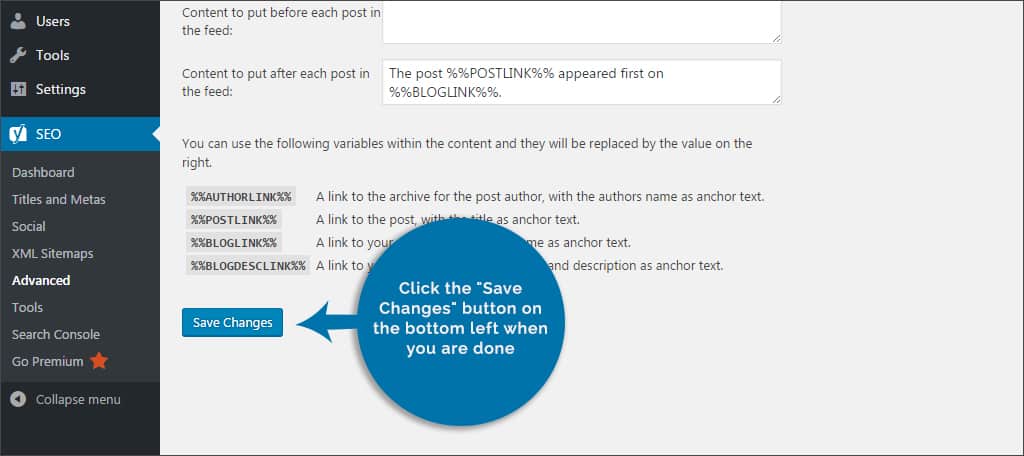
The Yoast SEO plugin has a wide assortment of tools for optimizing many aspects of your site. This feature helps you gain some recognition for your work while engaging the target audience even further.
3. Optimizing for the Feedly Reader System
Since Google Reader was discontinued back in 2013, Feedly.com has acquired a large number of users. It is one of the "go-to" places on the Internet to find content for just about any topic.
While you can still generate a bit of interest from Feedly users, you can make the experience better for yourself as well as those visitors. You can start by installing the Optimize your feed for feedly plugin. Here is how you use this to your advantage:
Step 1: Go to the plugins area of WordPress, add a new plugin and search for, "Optimize your feed for feedly."
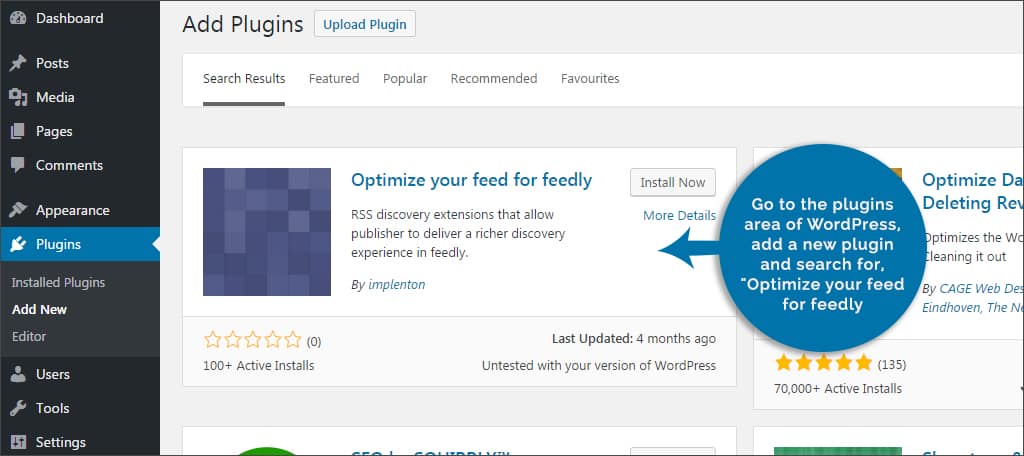
Step 2: Once you install and activate the plugin, a new feature will appear in the settings area of WordPress labeled, "OYFFF." Click this to open the Feedly options.
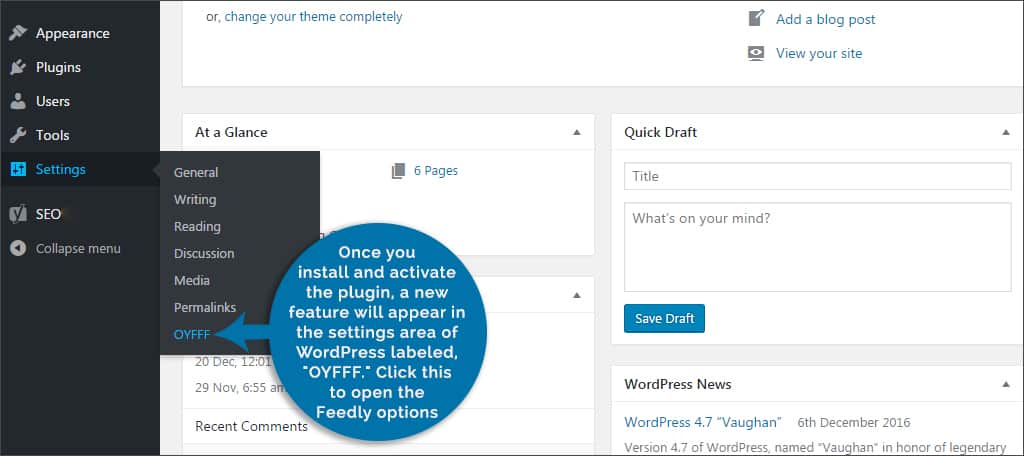
Step 3: Set your Feedly cover image. This can be from your media library or linked from a secondary URL. You can use a large image to represent your website.

Step 4: Upload your icon. You'll need to convert your icon image if you don't have the SVG file. You can use AConvert.com to convert JPEG or PNG files to SVG.
![]()
Step 5: Check the box to show your featured image before the RSS feed.

Step 6: Upload your logo. This has to be done in SVG format as well. You can use your website logo as long as it is 30 pixels high. You can use image-editing software to shrink this down.
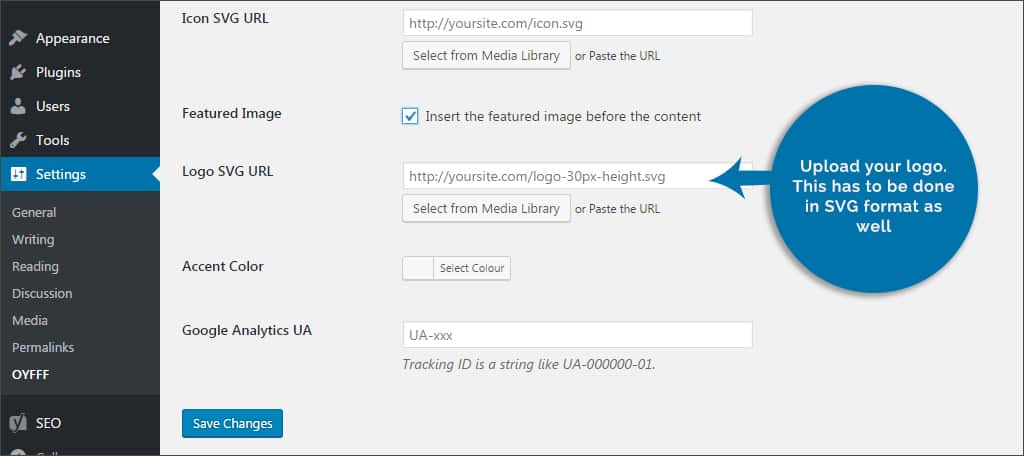
Step 7: Set your accent color to be shown in Feedly. This can be any color you wish, and it will accent your feed in the Feedly system to make it more memorable.
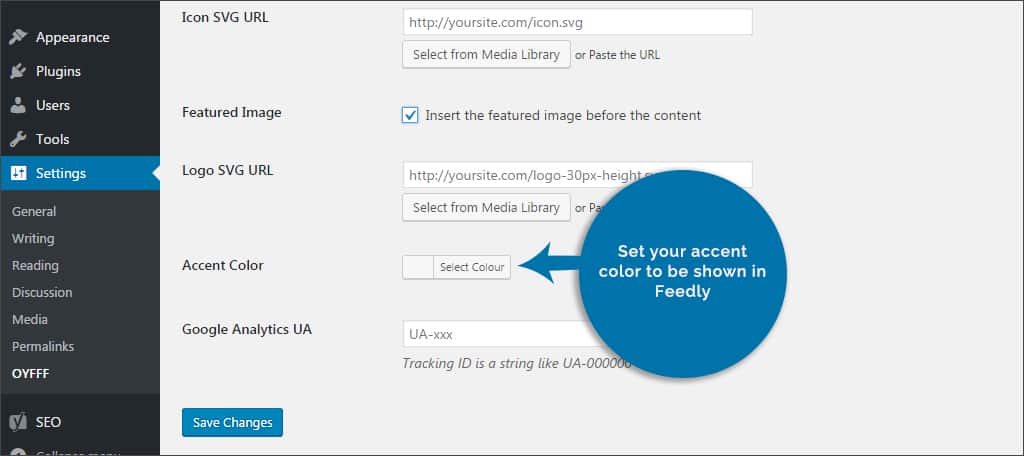
Step 8: Input your Google Analytics code. This is optional, but it can be a great way to track how your feed is being accessed online.
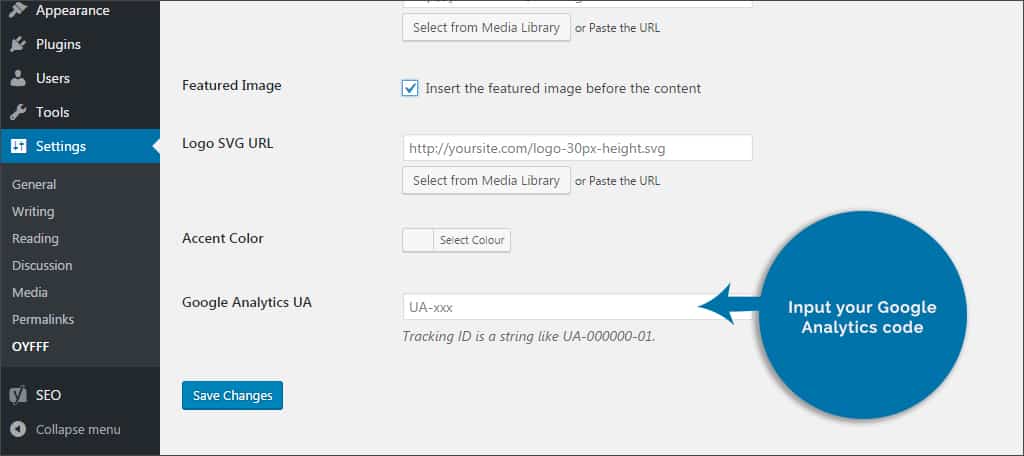
Step 9: Click the "Save Changes" button on the bottom left.
Now that you optimized your feed for Feedly, why not add buttons on your site? These "follow" buttons give users a chance to add your site to their Feedly accounts automatically. This is a quick process of visiting the Feedly Factory.
All you need to do is:
- Choose the size of the button you wish to use.
- Input the URL of your feed.
- Copy and paste the HTML code Feedly will give you into your WordPress website.
These are only a handful of ways you can optimize your WordPress RSS feed. You can also distribute the feeds according to category and author if you want to get specific. WordPress keeps track of all that stuff for you. Share your knowledge with those who use RSS readers and gain some fans. It may be more valuable to your site's visitor count than you might think.
What kind of additions do you use to engage visitors off-site? How often do you distribute your RSS feeds to reading platforms?
Source: https://www.greengeeks.com/tutorials/how-to-maximize-your-wordpress-rss-feed-and-why/
0 Response to "Feedly Show Article Instead of Blurb"
Post a Comment